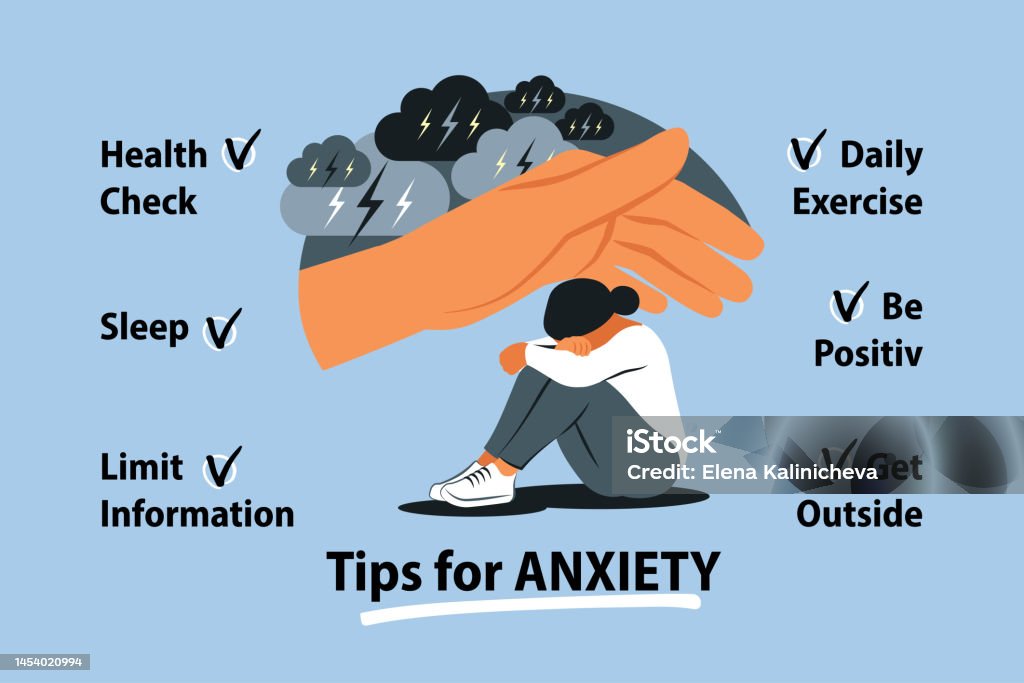Effective Techniques for Managing Anxiety
Discover practical strategies to alleviate anxiety, including mindfulness, exercise, and cognitive-behavioral techniques.

Understanding Anxiety
Anxiety is a natural response to stress, but when it becomes overwhelming, it can significantly impact daily life. Understanding the root causes of anxiety is the first step in managing it effectively. Anxiety can stem from various sources, such as genetic predispositions, environmental factors, or traumatic experiences. It manifests in different forms, including generalized anxiety disorder, social anxiety, and panic disorders. Recognizing the symptoms, which may include excessive worry, restlessness, or physical symptoms like increased heart rate, is crucial. By identifying the triggers, individuals can better understand their anxiety patterns and work towards managing them. It's important to remember that experiencing anxiety is not a sign of weakness but a common part of the human experience that can be addressed with the right strategies.
Breathing Techniques
One of the most effective and immediate ways to manage anxiety is through controlled breathing techniques. Deep breathing exercises help calm the nervous system and reduce stress levels. Techniques such as diaphragmatic breathing or the 4-7-8 method can be practiced anywhere, providing instant relief. Diaphragmatic breathing involves inhaling deeply through the nose, allowing the diaphragm to expand fully, and exhaling slowly through the mouth. The 4-7-8 method involves inhaling for four counts, holding the breath for seven, and exhaling for eight counts. These exercises not only lower heart rate but also help shift focus away from anxiety-provoking thoughts. Regular practice of breathing techniques can enhance overall mental well-being, making it easier to manage anxiety in the long term.
Mindfulness and Meditation
Mindfulness and meditation are powerful tools in the fight against anxiety. These practices encourage individuals to focus on the present moment, reducing the tendency to ruminate on past or future worries. Mindfulness involves paying attention to thoughts and feelings without judgment, which can help break the cycle of anxiety. Techniques such as guided meditation or body scan exercises can be incorporated into daily routines. By dedicating just a few minutes each day to mindfulness, individuals can cultivate a sense of peace and clarity. Meditation apps and online resources provide accessible options for those new to these practices. Over time, mindfulness and meditation can lead to a more balanced emotional state, improving resilience against stressors.
Physical Activity
Engaging in regular physical activity is a proven method for reducing anxiety. Exercise releases endorphins, the body's natural mood elevators, which help combat stress and anxiety. Whether it's a brisk walk, a yoga session, or a more intense workout, physical activity can divert attention from anxious thoughts and improve overall mood. Consistent exercise also promotes better sleep, which is crucial for managing anxiety. Incorporating activities that you enjoy ensures that exercise becomes a sustainable habit rather than a chore. Group activities or classes can also provide social interaction, further alleviating feelings of anxiety. By making physical activity a regular part of life, individuals can harness its benefits to maintain both mental and physical health.
Cognitive Behavioral Therapy (CBT)
Cognitive Behavioral Therapy (CBT) is a highly effective treatment for anxiety. This therapeutic approach focuses on identifying and challenging negative thought patterns that contribute to anxiety. Through CBT, individuals learn to reframe these thoughts, replacing them with more balanced and realistic perspectives. This process involves working with a trained therapist who guides the individual through various techniques, such as cognitive restructuring and exposure therapy. CBT empowers individuals to take control of their anxiety by developing coping strategies tailored to their specific needs. While therapy can require time and commitment, its long-lasting benefits make it a worthwhile investment in mental health. For those unable to access in-person therapy, online CBT programs offer an alternative solution.
Lifestyle Adjustments
Making lifestyle adjustments can significantly impact anxiety levels. Simple changes, such as maintaining a balanced diet, getting adequate sleep, and limiting caffeine and alcohol intake, can improve overall well-being. A diet rich in whole foods, including fruits, vegetables, and lean proteins, supports brain health and stabilizes mood. Prioritizing sleep hygiene by establishing a regular sleep schedule and creating a restful environment can enhance sleep quality. Additionally, reducing screen time before bed helps improve sleep patterns. Finding hobbies or activities that bring joy and relaxation can also provide an outlet for stress. By adopting a holistic approach to lifestyle changes, individuals can create a supportive environment that fosters mental health and reduces anxiety.
Social Support
Building a strong support network is essential for managing anxiety. Sharing experiences with trusted friends or family members can provide relief and perspective. Engaging in social activities and maintaining connections with others helps combat feelings of isolation that often accompany anxiety. Support groups, whether in-person or online, offer a safe space to discuss challenges and learn from others facing similar issues. Professional support from therapists or counselors can also provide valuable guidance. By surrounding themselves with understanding and supportive individuals, those struggling with anxiety can feel less alone in their journey. Social support not only provides emotional comfort but also encourages individuals to seek help and implement positive changes.
Professional Help and Medication
When anxiety becomes unmanageable, seeking professional help is a crucial step. Mental health professionals, such as therapists or psychiatrists, can offer tailored treatments and interventions. In some cases, medication may be prescribed to help manage symptoms. Antidepressants or anti-anxiety medications can be effective when used in conjunction with therapy. It's important to work closely with a healthcare provider to find the most suitable treatment plan. Medication should be seen as one component of a comprehensive approach to managing anxiety. Regular follow-ups and adjustments may be necessary to ensure optimal results. By acknowledging the need for professional assistance, individuals can take proactive steps towards regaining control over their anxiety and improving their quality of life.